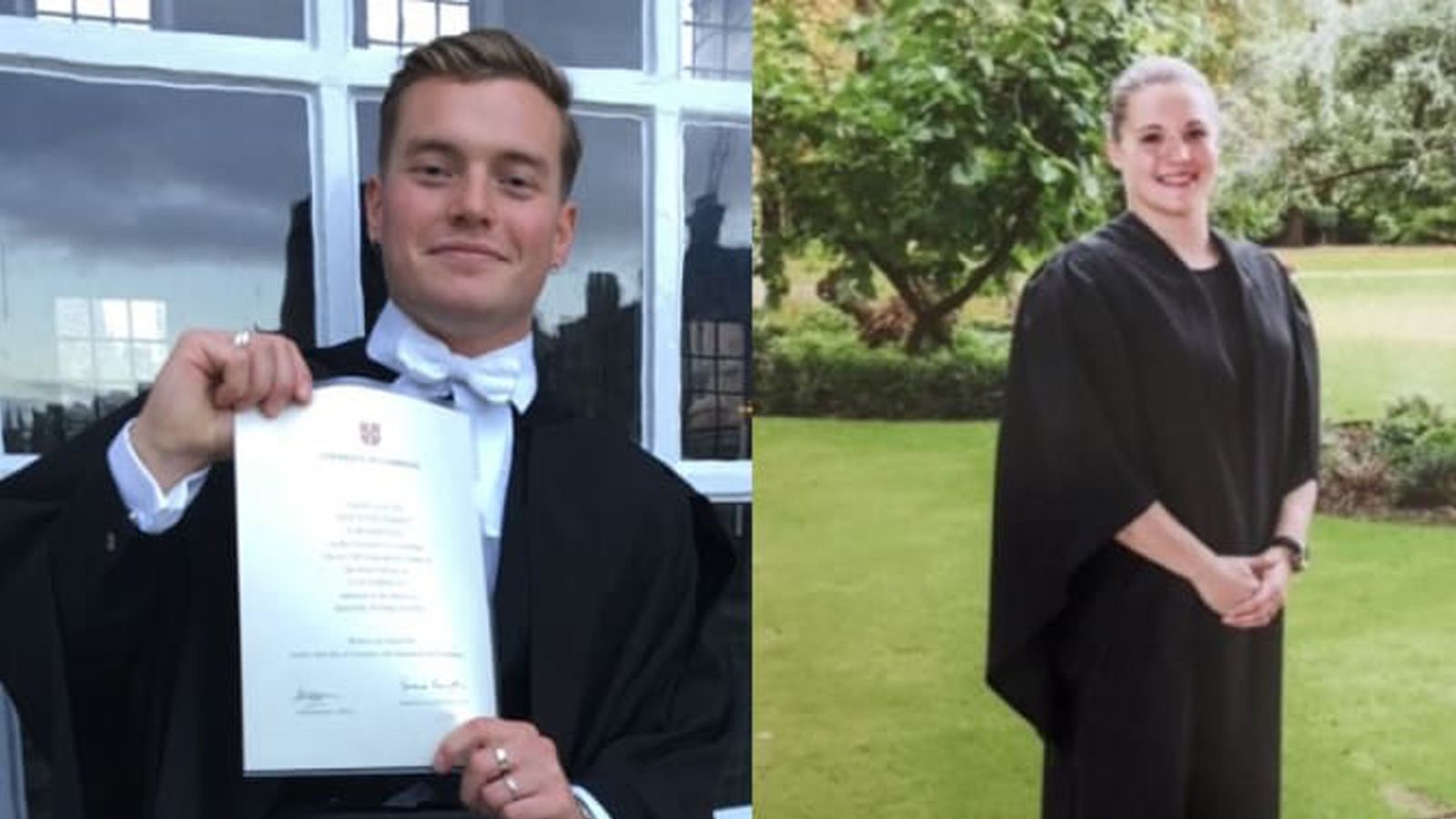MI5 received intelligence the Fishmongers’ Hall killer was planning an attack on his release, an inquest has heard.
Investigations into Usman Khan‘s activities behind bars found he wanted to “die and go to paradise”, a senior officer said.
But the security service was preparing to close his case just 11 days before his attack, on 29 November 2019.
The officer, known only as Witness A, gave evidence from inside a specially constructed booth at the Guildhall in London.
She is the first female officer to give evidence at an inquest into the victims of a terrorist attack in Britain.
Khan stabbed and killed Jack Merritt, 25, and Saskia Jones, 23 – workers on a Cambridge University prisoner rehabilitation project – at a conference at Fishmongers’ Hall.
He was shot dead by armed police on London Bridge 13 minutes after the attack began.
Eleven months earlier, Khan was released from Whitemoor Category A prison as a “high-risk” terrorism offender, having served half of a 16-year sentence.
MI5 began investigating Khan in early 2011, shortly after he was arrested for plotting to set up a terror training camp in Pakistan.
In 2012 he was given the lowest categorisation that he might re-engage in extremist activity.
But by the following year, this was said to be “likely”.
However the investigation was closed in February 2015 and only reopened in August 2018, four months before he was released.
Investigators received two key pieces of intelligence stating Khan “wanted to return to his old ways” and “planned to carry out an attack” on his release.
But both were said to be “uncorroborated” and of “unknown validity” – meaning MI5 “didn’t know if we could trust or distrust it.”
Jonathan Hough QC asked if there was “some corroboration between the two pieces of information that both suggested that Khan has plans to reengage in extremist activity?”
But Witness A insisted: “We would regard them as quite separate piece of intelligence and not necessarily corroborative of each other.”
She added: “We took every step we could to validate and corroborate both strands of intelligence and were unable to do so,” the officer added.
The intelligence suggesting Khan intended to return to his “old ways” was passed from the prison to the Probation Service – but was labelled “low grade information”.
Khan was placed under “enhanced surveillance” to “understand his mind set and intentions” when he was released from prison, on Christmas Eve 2018.
He told Prevent de-radicalisation police officers on the case how he had broken his old ways.
But the witness said: “We remained sceptical and that he might have been seeking to influence his licence conditions rather than complying.”
She added: “There was a chance that he may very well be saying that do avoid scrutiny or hide his true intention.”
“We deployed a number of capabilities against him, they were high priority.
An internal post-attack review by the service found that all the actions and decisions they had taken would not have “materially altered the outcome” and the decisions taken were “sound”.
The inquest continues.






















